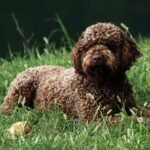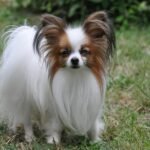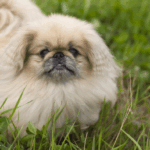Introduction to the Leonberger
The Leonberger is a majestic and powerful dog breed known for its gentle and friendly nature. With roots that trace back to the 19th century in Germany, this breed was originally developed as a companion and working dog. Renowned for its versatility, the Leonberger excels in various roles, including that of a family pet, therapy dog, and even in search and rescue operations.
This breed is characterized by its impressive size, striking appearance, and affectionate disposition. Known for their loving temperament, Leonbergers form strong bonds with their families and are particularly good with children, giving them the deserved reputation of being “gentle giants.”
Physical Characteristics
Leonbergers are large, well-muscled dogs with a commanding presence. Adult males typically weigh between 110 to 170 pounds while females weigh between 90 to 140 pounds. Their height usually ranges from 26 to 31 inches at the shoulder. The breed features a balanced body, with a broad head, powerful neck, and deep chest that allows them to be both agile and strong.
One of the most distinctive features of the Leonberger is its luxurious double coat, which is water-resistant and can come in various colors, including yellow, red, and sandy shades. The coat requires regular grooming to prevent matting and to keep the dog’s skin healthy. Understanding the physical characteristics of Leonbergers is key to appreciating their majestic presence.
Size and Weight
The size and weight of the Leonberger contribute significantly to its overall appearance and health. Being a giant breed, their weight distribution is important for their mobility and longevity. Regular exercise is crucial, as keeping them active can help manage their weight and prevent obesity, which is a common issue among large dogs.
It is important to note that when considering a Leonberger, potential owners should prepare for regular veterinary check-ups to monitor their growth and provide appropriate health interventions during their lifetime. Feeding them high-quality food that meets their nutritional needs is also paramount in promoting a healthy development.
Coat and Grooming Needs
The Leonberger’s coat demands attention and care to maintain its luxurious and healthy appearance. This breed has a thick double coat that sheds seasonally, meaning that owners will need to invest time in grooming, especially during spring and fall. Regular brushing—at least weekly—is necessary to remove loose hair and prevent matting.
In addition to brushing, owners should be mindful of the dog’s ears, which are prone to wax buildup, and regularly check for any signs of infection. Bathing should occur as needed, keeping in mind that over-bathing can strip natural oils from their coat, so it’s important to find the right balance in grooming. A proper coat not only enhances the dog’s appearance but also contributes to their overall health and comfort.
Temperament and Behavior
Leonbergers are known for their calm demeanor and inherent friendliness. This breed is particularly known for their gentle nature, making them great companions for families with children. Their playful personality and love for social interaction set them apart from many other breeds. They thrive on human companionship and do not do well when left alone for prolonged periods.
Socialization and Interaction
Socialization is one of the most important aspects of raising a Leonberger. From a young age, exposing them to various environments, people, and other animals can greatly influence their temperament. This exposure will help reduce the likelihood of fear or anxiety in unfamiliar situations, allowing them to grow into well-socialized adults.
Trainability
The Leonberger is intelligent and eager to learn, which makes them relatively easy to train. They respond well to positive reinforcement methods such as praise, treats, and play. Due to their gentle nature, harsh training methods can be counterproductive and may hinder progress or instigate fearful behaviors.
Health Considerations
Like all breeds, Leonbergers are prone to certain health issues. Being a giant breed, they can suffer from conditions that affect bigger dogs, such as hip dysplasia and heart problems. Regular veterinary check-ups are essential in identifying any potential health issues early.
Common Health Issues
| Health Issue | Symptoms | Treatment |
|---|---|---|
| Hip Dysplasia | Difficulty in movement, limping, or reluctance to exercise. | Weight management, joint supplements, or surgery in severe cases. |
| Bloat | Abdominal swelling, restlessness, drooling, and discomfort. | Immediate emergency treatment; may require surgery. |
| Heart Problems | Coughing, lethargy, decreased endurance. | Medication, lifestyle changes, and potentially surgery. |
Preventative Care
Preventative care is critical for maintaining the health of a Leonberger. Regular exercise helps keep their weight in check and promotes cardiovascular health. Feeding a balanced diet tailored to their specific age and health concerns is essential. Additionally, routine veterinary visits for vaccinations and health screenings will go a long way in catching any issues before they develop further.
Living with a Leonberger
Living with a Leonberger can be a rewarding experience. They require enough space to move around comfortably; therefore, having a sizable home or access to a yard is ideal. Regular exercise is critical to keep them happy and healthy, so walks, playtime, and mental stimulation are important aspects of their daily routine.
Exercise Requirements
- Leonbergers should have at least 60 minutes of exercise daily.
- Playing fetch or engaging in swimming can be excellent activities for them.
- A well-fenced yard is ideal for safe outdoor play.
Exercise doesn’t have to be boring; it can be an opportunity for bonding. Engaging in activities such as hiking, swimming, or playing in the park can be enjoyable for both the owner and the dog. It’s essential to tailor their exercise routine to their age and fitness level, especially for older dogs or those recovering from injury.
Feeding and Nutrition
Providing the right nutrition to a Leonberger is crucial for its overall health. Due to their size, they require a high-quality diet that is rich in protein and balanced with the necessary vitamins and minerals to support their growth and health needs. Consult with a veterinarian to determine the most appropriate feeding plan to suit their age, weight, and activity level.
Portion control is vital in preventing obesity, a common issue in giant breeds. Overfeeding can lead to significant health complications. It’s advisable to have a scheduled feeding routine to promote good digestive health. Additionally, ensuring a fresh supply of clean water is essential at all times for hydration.
Conclusion
The Leonberger stands out as a remarkable breed that combines size with a gentle, loving temperament. Known as gentle giants, their affectionate nature makes them perfect for family environments. Understanding their needs—from grooming and health considerations to socialization and proper nutrition—can help potential owners appreciate this magnificent breed more fully.
In summary, Leonbergers require commitment and care, but with the right upbringing, they can be incredibly rewarding companions. Their loyalty and intelligence make them not only great pets but also lifelong friends. With proper training, socialization, and care, they will surely enrich the lives of those fortunate enough to welcome them into their homes.
Frequently Asked Questions (FAQ)
Are Leonbergers good with children?
Yes, Leonbergers are known for their gentle and friendly nature, making them great companions for children. Their playful disposition and natural protectiveness make them a suitable breed for families. However, supervision during playtime is advisable due to their large size.
How much exercise do Leonbergers need?
Leonbergers require a minimum of 60 minutes of exercise each day. Regular walks, active play, and mental stimulation are important for their health and happiness. Engaging them in outdoor activities can strengthen the bond between owner and dog.
Do they have bad breath?
Like many large breeds, Leonbergers can suffer from dental issues if not cared for properly. Regular dental hygiene, including brushing and dental treats, can effectively manage any bad breath issues. It’s crucial to incorporate dental care into their overall grooming routine.







